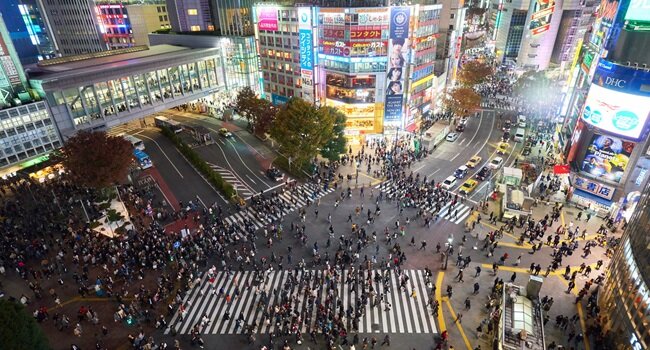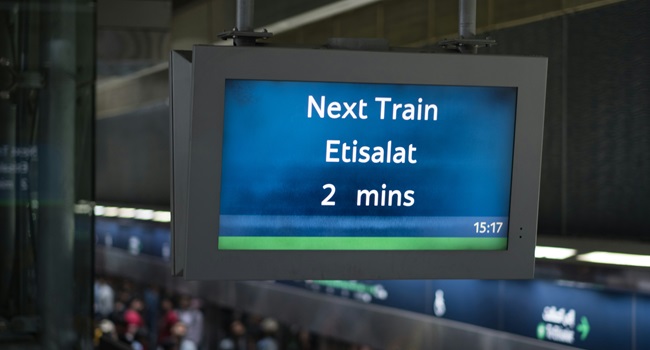Architecture and construction projects are their own distinct industry, one that is ever-changing. With building and design trends that come and go, it’s no surprise that digital technology is part of the construction process these days. The impact that such tech is having is quite profound and there’s no better way to implement it than with Kitcast digital signage software. This guide will tell you all about how digital signs and construction are coming together in projects around the world.
What is Digital Signage for Construction Projects?
The simple answer to this question is any digital signage that becomes part of the architecture of a construction project. Instead of adding the signage after the building is complete, it’s added as part of the process. This allows for the integration of the signs in a modern way that keeps the aesthetics of the building in mind as they are added. The incredible benefits means that more and more new builds are incorporating digital signage.

Examples of Digital Signage Blended with Construction
There are plenty of examples of how digital signage is becoming a seamless part of the building process. Here are some of the most common:
- Billboards attached to the outside of large buildings.
- Indoor and outdoor video walls.
- Wayfinding signs in large buildings or on the floor.
- Museum exhibits.
- Interactive art pieces.
Benefits of Using Digital Signs for in Building Projects
The increase in the use of digital signs continues to be seen in new and renovated building projects. There are some great advantages to this. Have a look at them below.
Easy to Integrate
Choosing to add digital signage during construction allows for the displays to be seamlessly integrated into the project. This adds to the modern and clean look that many builders and buyers are looking for these days.

Eco-Friendly and Sustainable
Many new builds are keeping the environment in mind, choosing eco-friendly materials and prioritizing sustainable designs. Digital signs fit this desire because they save resources and need less energy and materials to operate than traditional methods of wayfinding, advertising and making announcements.
Enhances Appearance
The way a building looks plays a large role in how it’s designed and built. Digital displays that are incorporated during construction lend themselves to a clean and modern aesthetic that complements the overall look and feel of the project. A color palette and theme further enhance the appearance of the signs and helps them meld with the project design.
Builds Revenue
When digital signs are used for marketing and advertising purposes, they have the potential to increase a business’s customer base and sales, thereby increasing revenue at the same time. The signs allow brands to widen their reach and create brand recognition at the same time.

Easy to Adapt
Unlike paper signage, it’s fast and easy to update, change and modify digital sign content. Displays can also be scheduled, so they appear according to the time of day, season, holiday, weather, and other factors that influence customer preferences and behavior. That makes it easy to make announcements, broadcast special deals and change menus, based on available ingredients.
Boosts Communication
Digital signs are a premier way to communicate with the general public, especially as part of a marketing strategy. They can also be used to broadcast emergency alerts, make urgent notifications, and can be used inside and outside of a building. Digital signs can also be used for internal communication, such as for making announcements to staff or for training purposes.
Considerations for Incorporating Digital Signage
There are plenty of great advantages to adding digital signage to your building project plans. But there are also some things to keep in mind as you do so. Keep in mind that once a digital sign is incorporated, it’s permanent. Some things to keep in mind as you make the choice to add the signs or not include the following:
- There is extra planning that’s involved with incorporating digital signs.
- The signs aren’t just added and forgotten – they will need regular maintenance and may need updates and repairs from time to time.
- They could need to be replaced sometime in the future.
While these disadvantages are definitely things to keep in mind, businesses and brands around the world are finding that adding digital signage to their buildings is a trend they can get behind.
Conclusion
Predictions indicate that the use of digital signage on modern architecture and in new building projects around the world will likely continue to trend. It’s going to grow and evolve as the technology changes and as businesses and brands find out how it can be upgraded to make digital signage even more beneficial. Before adding them to your construction plans, be sure you have a clear goal of their use and understand exactly who they’re going to look. That way you’ll get the most out of your digital signs each and every day.





























